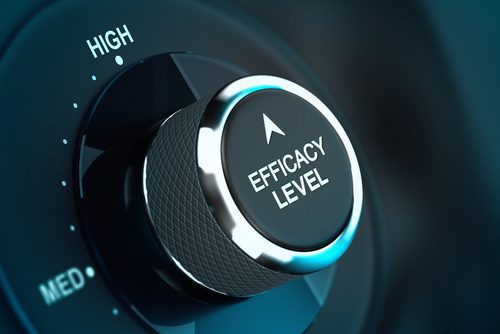More often than not, when we think of doing new things for the first time; our minds are riddled with anxiety, self-doubt and a lot of exaggerated ‘what ifs’. One major response to these feelings is accepting that perhaps we are not really capable of handling these challenges. The other response is facing the challenge; it might require a little push from a loved one or even a supervisor but we face it anyway.
Our response to these challenges, whichever it is, is a testament of our belief in our capability to get things done. Self-efficacy is an individual’s belief about his/her capabilities to produce defined levels of performance that exercise influence over events that affect his/her life. Self-efficacy beliefs determine how people feel, think, motivate themselves and behave. For instance, a person who is doing a public presentation for the first time and a professional public speaker would have entirely different kinds of stage presence. The debut speaker might feel overwhelmed and unprepared, and this would be evident in the presentation. On the other hand, the pro speaker would show a lot more command in the presentation despite any feeling of overwhelm or unpreparedness. The difference in their outlooks and performances in their presentations could be accounted for by various reasons:
There are currently five (5) known sources of self-efficacy. These are;
- Mastery Experiences: This is the most common and efficient source of self-efficacy. It correlates self-efficacy with the level of experiences one has in a particular task; meaning that the more times you try doing something, the better and more confident you get at doing it. Using the earlier illustration, one major difference between any professional and an amateur in a task or position is that the professional has experienced things related to that task/position that the amateur has no solid clue about.
- Vicarious Experiences: This source of self-efficacy comes from our observation of people who are succeeding at the task we are challenged by. Hence the need for role models and mentors, people that can encourage us to believe that we also have what it takes to overcome challenges and be successful. Unlike the example above, if the amateur speaker observes the professional speaker, learns about possible challenges and how the professional overcame them; it would improve the self-efficacy beliefs of the amateur speaker.
- Verbal Persuasion: Nothing boosts an individual’s morale better than words of encouragement from people who influence his/her life. Knowing that these people believe in you and in your capability to overcome challenges, you are likely to put more effort into achieving that task, and sustain that effort when difficulties arise. It is safe to assume that part of the professional speaker’s confidence was a result of words of encouragement from people that mattered to him/her, as well as, positive feedback from those he had impacted over the period of his/her career.
- Emotional & Physiological States: There are certain days you wake up so happy that nothing can dampen that mood of yours, and so you face every challenge with that cheery disposition which boosts your confidence in your abilities. On some other mornings, you feel so down that you can almost see the whole day going wrong. That feeling of gloom would reduce your confidence in your abilities, and then every challenge is suddenly harder to overcome than they should be. Bottom line is, while positive emotions can boost our self-efficacy, stress reactions, tension, and negative emotions might make us vulnerable to poor performance.
- Visualization: There is something amazing about the power of mental images; visualizing where you want to be, how you are going to get things done, and constantly revisiting those images. Visualizing yourself being efficient and successful in any given situation would reinforce the belief you have in your ability to succeed in that situation. An amateur public speaker could visualize him/herself giving a talk, during which he has the rapt attention of everyone in the auditorium. He could picture himself being eloquent and confident, and maybe even being honored by a standing ovation.
There are several benefits attached to having high self-efficacy, people with a strong sense of self-efficacy tend to view challenging problems as achievable goals, develop more in-depth interests in their responsibilities, have a stronger sense of dedication to their tasks and interests, discover new skills and interests in otherwise challenging situations, and pull through delays and disappointments better than people with low self-efficacy.
Written by: Deborah Olajitan
